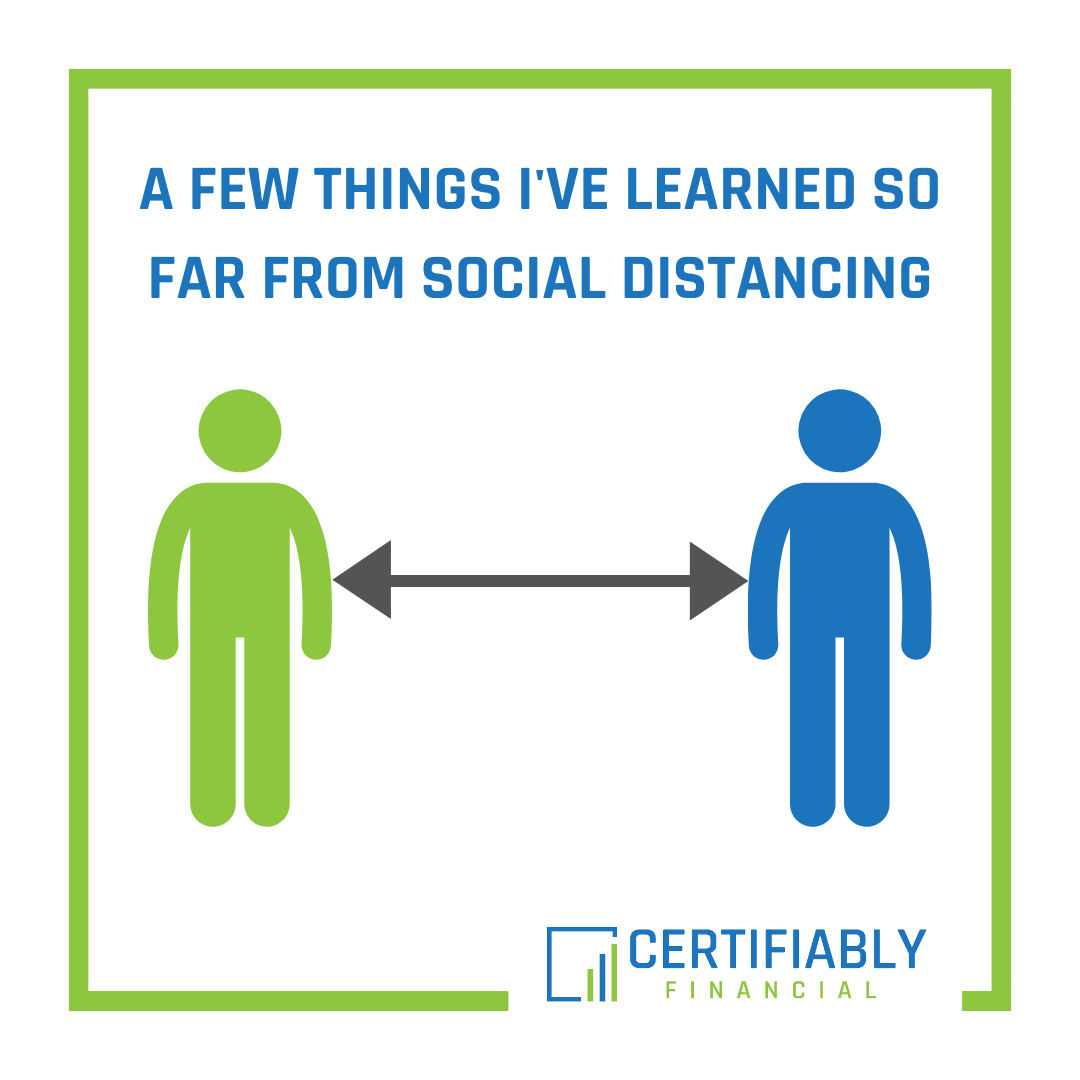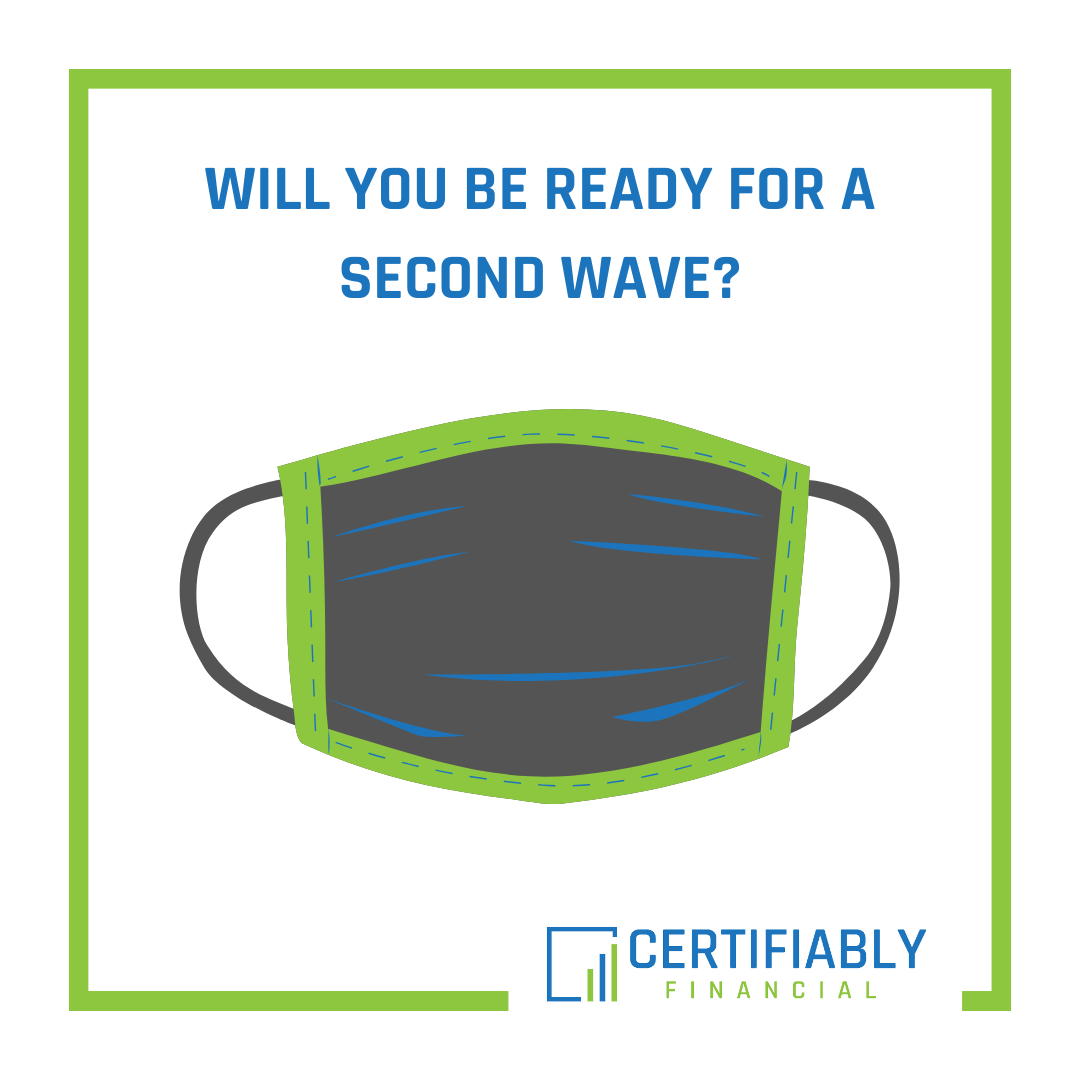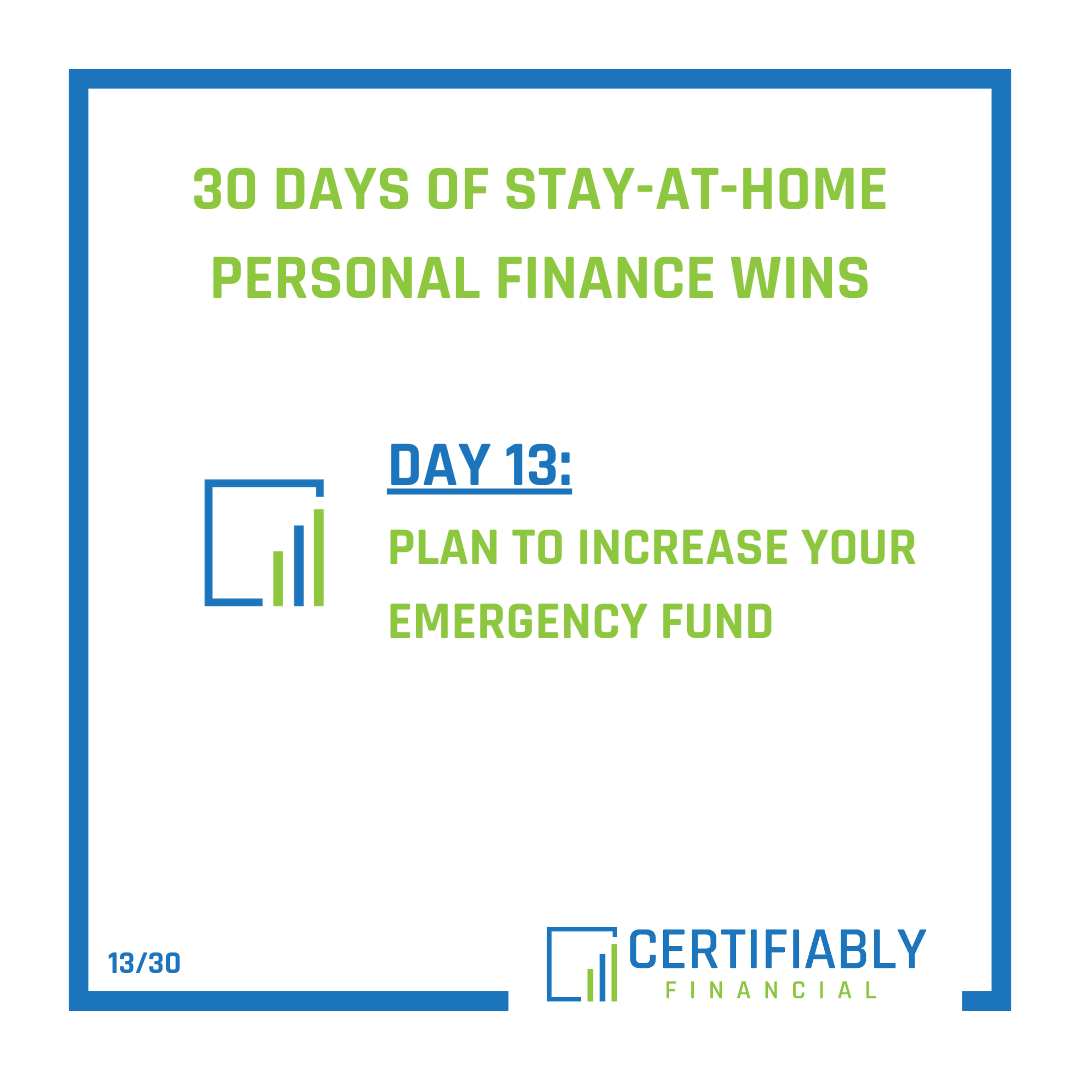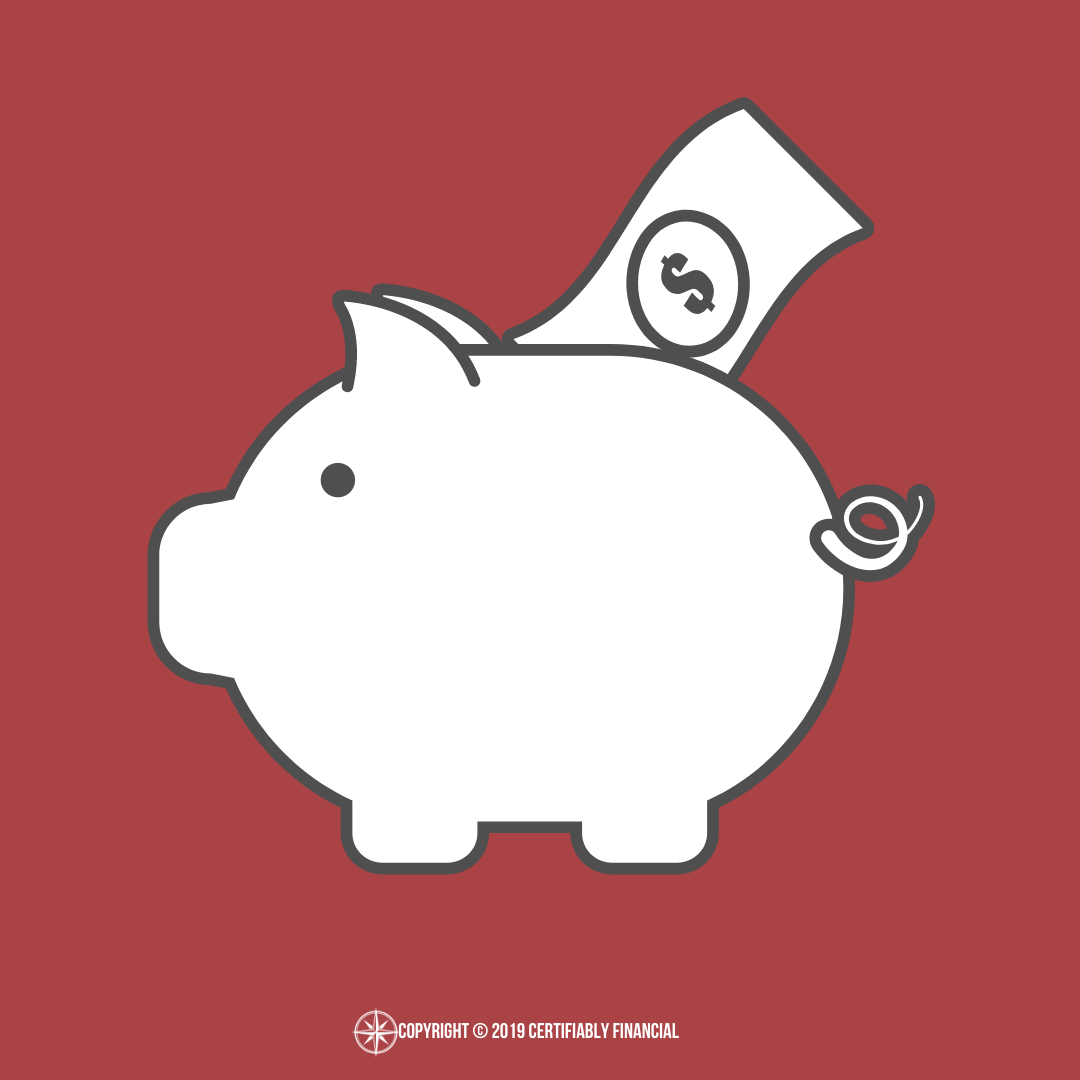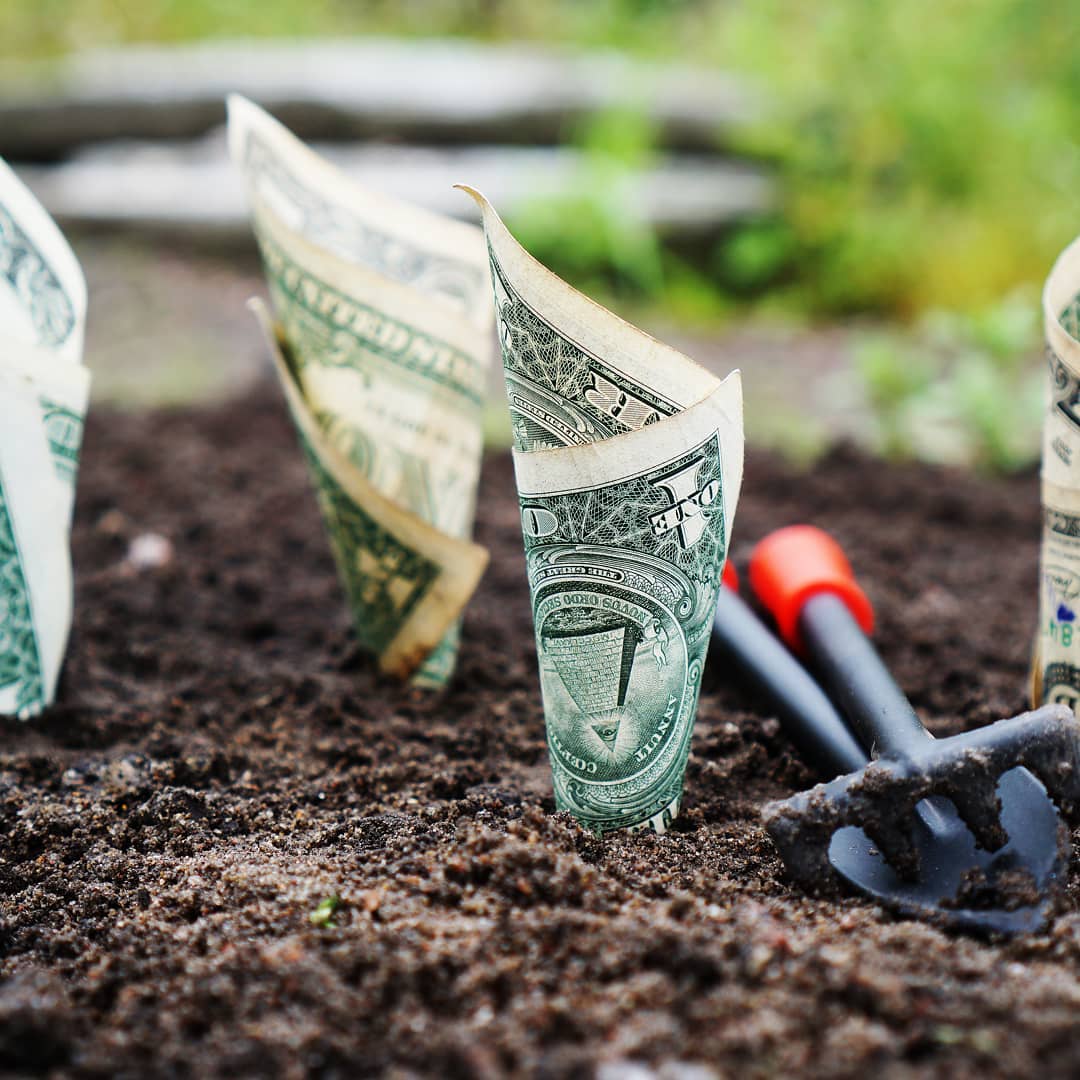Here are a few things I’ve learned so far during social distancing (not all directly having to do with personal finance), in no particular order:
Emergency Fund
Will You Be Ready For A Second Wave?
Today (May 11 as I write this), marks a significant stage in Governor Holbomb’s Back On Track Indiana plan as restaurants are allowed to reopen at 50% capacity and personal services may reopen with restrictions. At the same time, Seoul, South Korea has ordered bars and clubs closed due to the highest coronavirus case infections report in a month with over 50 cases linked to one man who visited many bars and clubs, according to the Wall Street Journal. This is after that country had previously been praised for controlling the outbreak.
Day 13 Of 30 Days Of Stay-At-Home Personal Finance Wins: Plan To Increase Your Emergency Fund
What if you were able to come out of this time of social distancing and economic crisis with a stronger and healthier financial life? What if you looked at this as an opportunity to take a little bit of your extra time each day to work on your finances?
A Close to Home Example of Why You Need an Emergency Fund
Unfortunately, those of us in Indianapolis have a prime example right in our backyard of why it’s so important to have a properly funded emergency fund in place.
Focus on the Fundamentals
< 1 minute read
I think that a lot of people get caught up in wanting to find a get rich quick scheme when they really need to be focusing on the fundamentals. Just like with everything else (your job, the sport that you play, building wealth), if you don’t master the fundamentals you’re never going to reach your goals.
Instead of focusing on that hot stock tip that someone gave you or the MLM that promises you’ll be making 6 figures in a year, you’d probably be better off by focusing on the following:
- Follow a budget
- Establish an adequate emergency fund
- Save & invest for retirement
- Make sure you’re adequately insured
- Prioritize paying off your debts
- Save for short-term goals
Is your emergency fund adequate?
< 1 minute read
Here’s how to find the answer:
If you were to lose your job today, or you were to become disabled and couldn’t work, would you be able to sustain your lifestyle with your liquid cash savings (checking account, savings account, etc.) for 3-6 months without having to go into debt or pull money from accounts that are marked for future goals?
This isn’t the only way to look at it though. Do you have enough cash in place to cover an unexpected roof replacement, new HVAC when the furnace goes out, or new transmission when your car breaks down? These things happen more often than we like to think.
If the answer to that is no, then you probably don’t have an adequate emergency fund in place.

